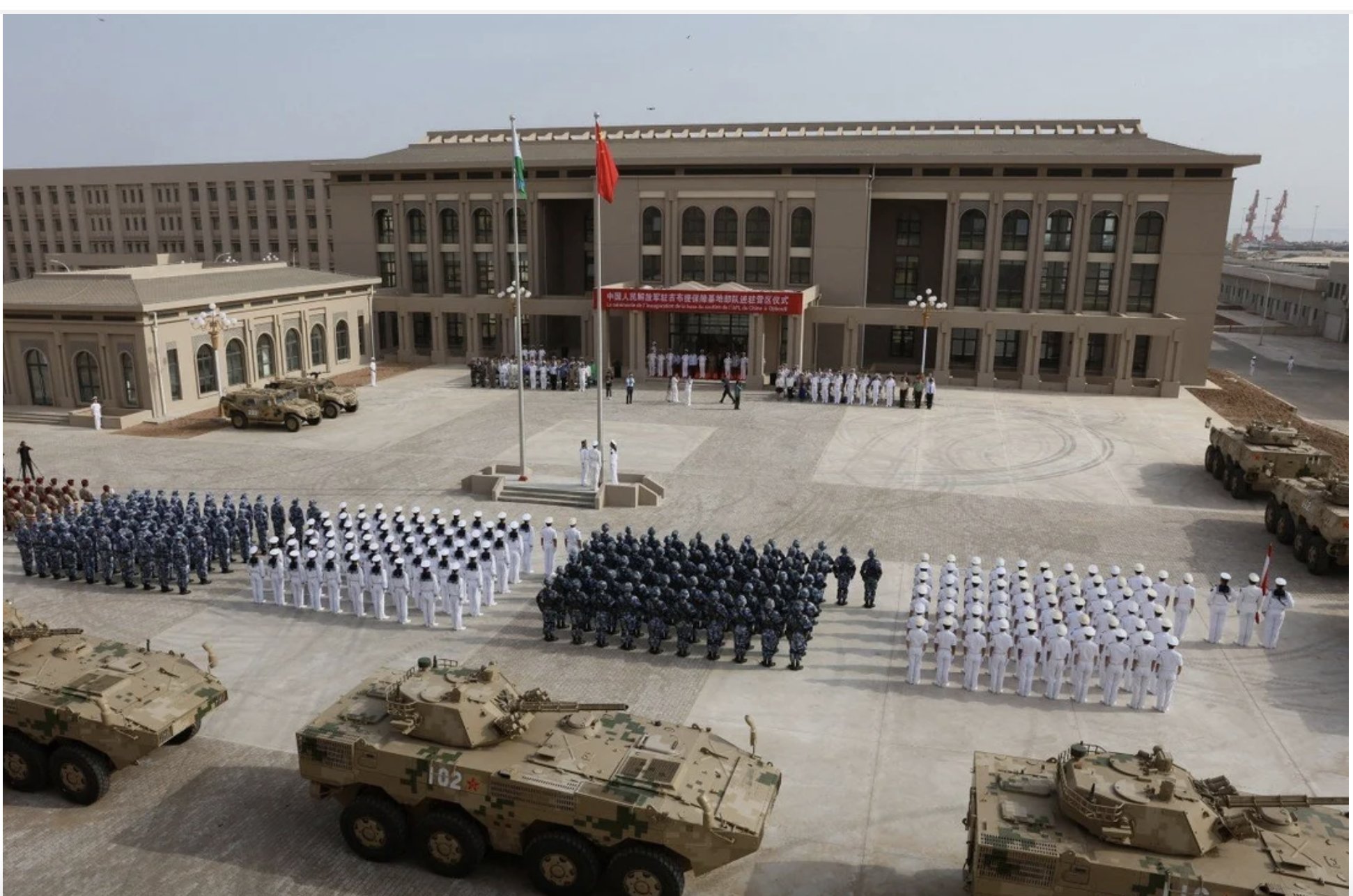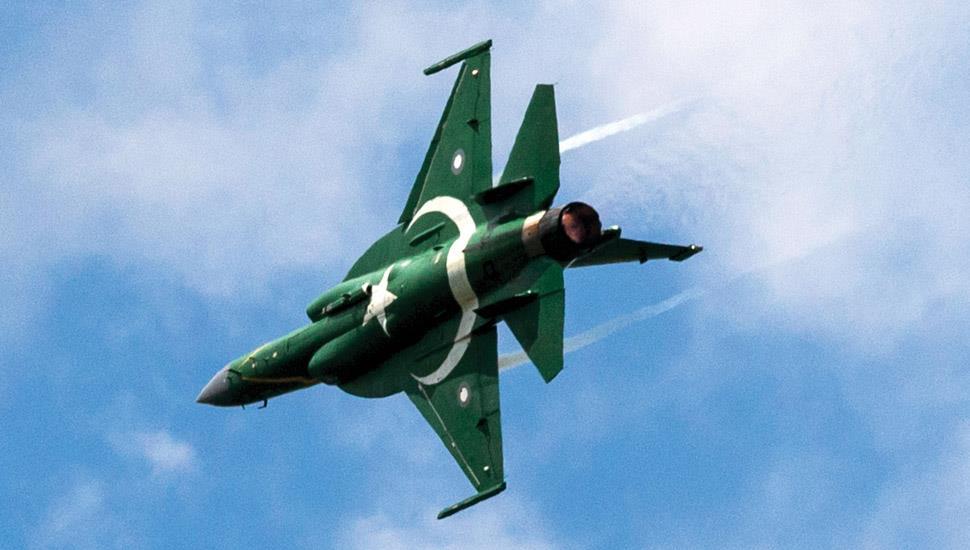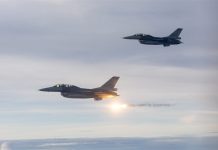China is allegedly making behind-the-scenes moves in Argentina to secure permission to establish a new naval base in the city of Ushuaia, Tierra del Fuego province, which would effectively grant Beijing access to Antarctica.
French news site Intelligence Online reported in November 2022 that Argentina-based Chinese Communist Party (CCP) official Shuiping Tu had achieved a breakthrough with local officials in the Tierra del Fuego province for a new naval base that would enable the People’s Liberation Army (PLA) Navy to control a critical passage connecting the Atlantic and Pacific Oceans.
The proposed facility would be accessible only to the Chinese military personnel, from where they will be in the position to monitor communications throughout the southern hemisphere, reported Intelligence Online.
“A possible Chinese base in Ushuaia would allow Beijing to have a permanent enclave in the Southern Hemisphere, with a projection toward the South Atlantic, which, depending on the conditions negotiated with Argentina, could allow for the construction of facilities, as well as the presence of naval units and military contingents in this quadrant,” Alberto Rojas, director of the International Affairs Observatory at Chile’s Finis Terrae University, told Diálogo, a digital military magazine published by the US Southern Command.
“China could intercept all regional communications with a clear economic and strategic impact, in addition to gaining the potential to maintain permanent monitoring of maritime transit,” he continued.

According to Rojas, the presence of a Chinese military base in South America could be interpreted as an essential strategic move by Beijing.
“The Belt and Road [BRI] project announced by China in 2013 seeks to have a clear projection toward this area of the continent. And if this base in Ushuaia materializes, it could become the first of many others, both on the Atlantic and Pacific coasts or the Andean area,” Rojas said.
As of present, China has three operational military bases overseas. Of these, the one in Djibouti in East Africa is the most prominently known. It was China’s first overseas naval base, established in 2017.
It was born out of efforts to address the Somali pirates’ attacks against cargo ships moving through the Gulf of Aden, gaining China a strategic presence along the route that connects the Red Sea to the Indian Ocean.

China also has the Ream naval base in Cambodia, which offers Beijing an important foothold in the Southeast Asian area. According to Rojas, China enjoys a high-level autonomy both in the base and its surrounding area, to the extent that it has already built a new port.
China-funded expansion at Cambodia's Ream Naval Base continues at an accelerated pace. 28 acres, more than 15% of the base's total area, have been cleared since July. https://t.co/KyHP232gTQ pic.twitter.com/2xRQh5vgQA
— Greg Poling (@GregPoling) October 18, 2022
“And there is the base in Tajikistan, under construction in the Gorno-Badakhshan autonomous region, which shares borders with China and Afghanistan, with which Beijing seeks to reinforce its presence in Central Asia,” Rojas said.
Apart from these military facilities, there is also the Espacio Lejano Station in Argentina, which is a radio station located in Loncopué Department, Neuquén Province, operated by the Chinese National Space Administration (CNSA) but is believed to report directly to the People’s Liberation Army Strategic Support Force (PLASSF).

“I see it like this: They are facilities of an authoritarian government, which does not let Argentines access them, except if they go there to visit,” US Army General Laura J. Richardson, commander of US Southern Command, told Infobae on April 27, 2022.
“What are they up to? They [China] don’t have the same concerns we do regarding freedom and a free, secure, and prosperous Western Hemisphere. I’m concerned about it. And it’s run by a state-owned enterprise and the People’s Liberation Army. What are they using that facility for?” General Richardson quipped.
US Offers Argentina F-16s
A leading US Navy think tank, US Naval Institute (USNI), published a report in August last year drawing attention to China’s growing influence in Argentina through trade, finance, and power. The report expressed concerns that this growing closeness between the two countries may turn into military relations.
In the report, the USNI also talked about how the UK’s post-Falklands War security policy entailed risks of pushing Argentina closer to China and suggested a joint security cooperation investment in Argentina with the UK.
The UK’s resistance to Argentine military modernization and advancement pushed Argentina into the hands of China. Argentina engaged with China in 2021 to evaluate Sino-Pakistani JF-17 fighters.

Following the 1982 Falklands War, the UK enforced an arms embargo on Argentina to prevent the Argentine military from modernizing. As part of this policy, London has prevented Buenos Aires from acquiring several fighter jets by imposing sanctions on parts of those aircraft made in the UK.
For example, Argentina intended to acquire five French Dassault Super Etendard aircraft but was unable to because of the arms embargo over the British-made MK6 ejection seat used in the aircraft.
The same problem is also faced by the US, which has offered to sell former Danish F-16 A/B MLU to Argentina and is negotiating with the UK to approve the sale, according to the USNI’s report, which described the UK’s post-Falklands War security policy as ‘outdated.’

Argentina used to boast a formidable military during the late 1970s, but the defeat in the Falklands changed that, as it led to colossal underinvestment and a decrease in the country’s defense capabilities.
Argentina has not had an interceptor fighter for the past several years, whereas its neighboring countries, Brazil and Chile, are far better equipped, qualitatively and quantitatively.
Finally, Buenos Aires decided in 2021 to engage with China to evaluate the Sino-Pakistani JF-17 Thunder as a possible option to bolster its airpower. However, Argentine President Alberto Fernandez announced in December 2022 that the country had halted its plans to acquire a new aircraft.
?"Argentina tiene que destinar sus recursos a cosas más importantes que a la compra de aviones militares. Estamos en un continente muy desigual, pero no hay problemas de guerra y se busca la unidad entre los países". El presidente @alferdez en The Global Boardroom de @FT. pic.twitter.com/IexXG8ryi6
— Alberto Fernández Prensa (@alferdezprensa) December 7, 2022
“Argentina has to allocate its resources to more important things than the purchase of military aircraft. We are in an unequal continent, but there are no war problems, and unity among countries is sought,” Fernandez said in an interview with Financial Times.
Experts suggest domestic circumstances of the country may have had a role in the Argentine government’s decision to put a halt. The Argentine economy is currently grappling with inflation and considering the current global recessionary trend. The situation does not bode well for the South American country.
Nevertheless, only a month before President Fernandez’s announcement, the top Argentine Air Force delegation reportedly traveled to Denmark to inspect second-hand F-16 fighter jets offered by the US.
So, there is still hope for the US, which wants to sell these surplus Danish F-16s to Argentina to keep China from gaining a foothold in South America. The USNI report argues that London must reconsider its arms embargo on Argentina, emphasizing that it is preferable to have Argentina’s military personnel influenced by the US instead of China.
- Contact the author at tanmaykadam700@gmail.com
- Follow EurAsian Times on Google News




